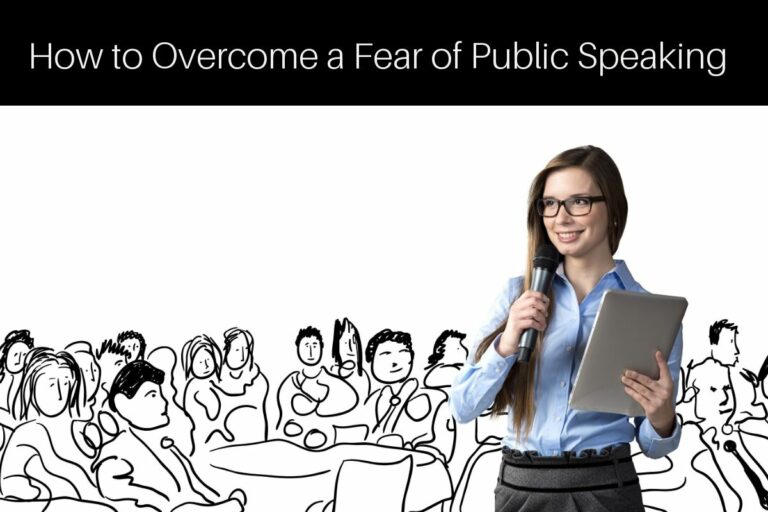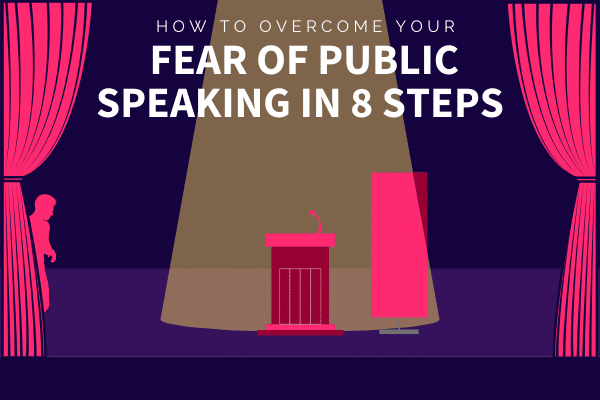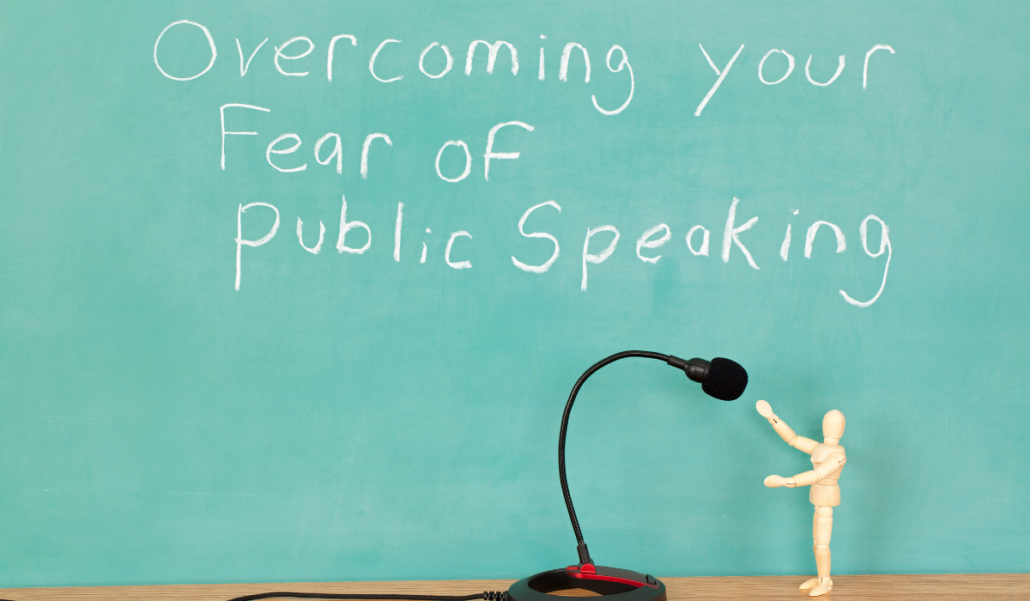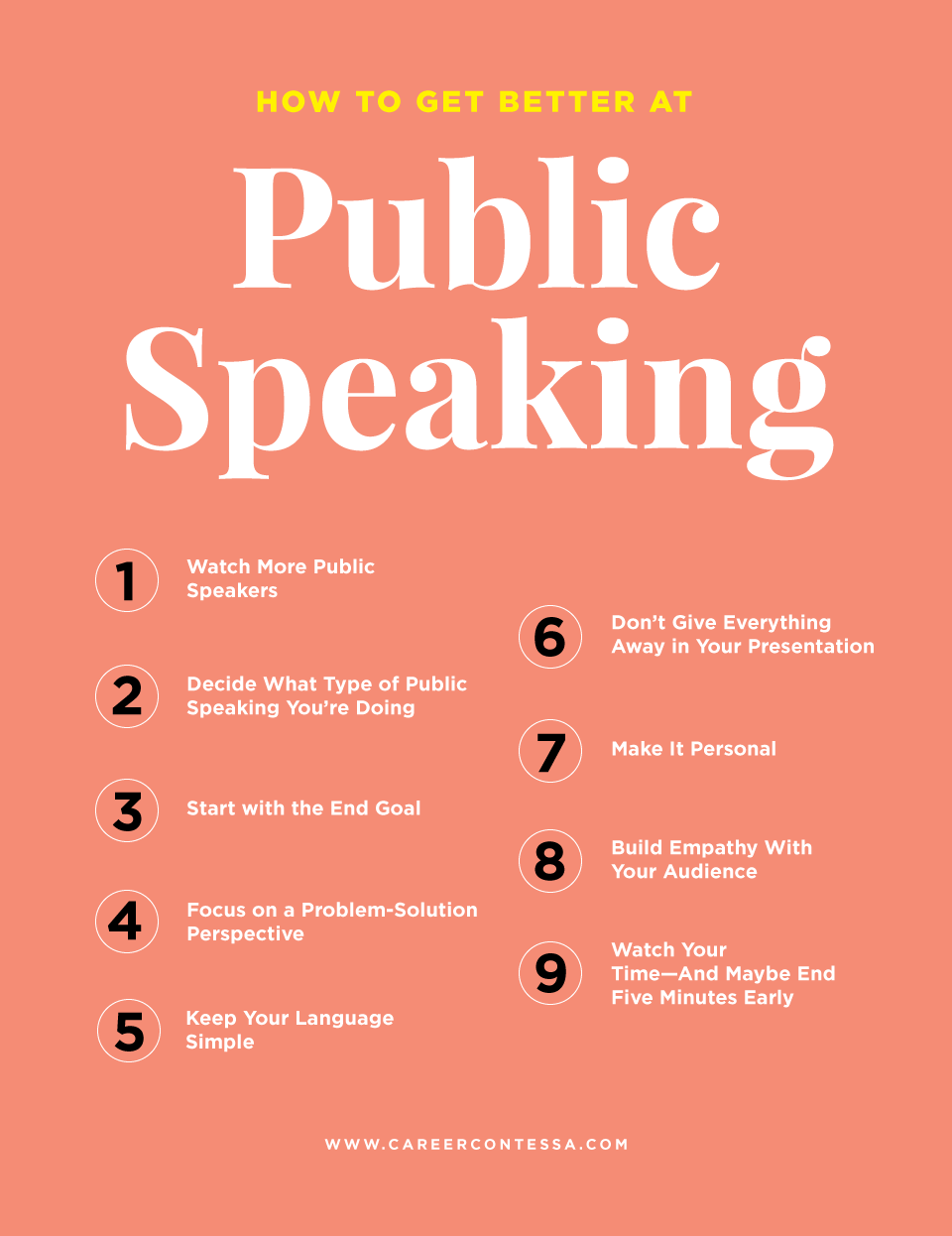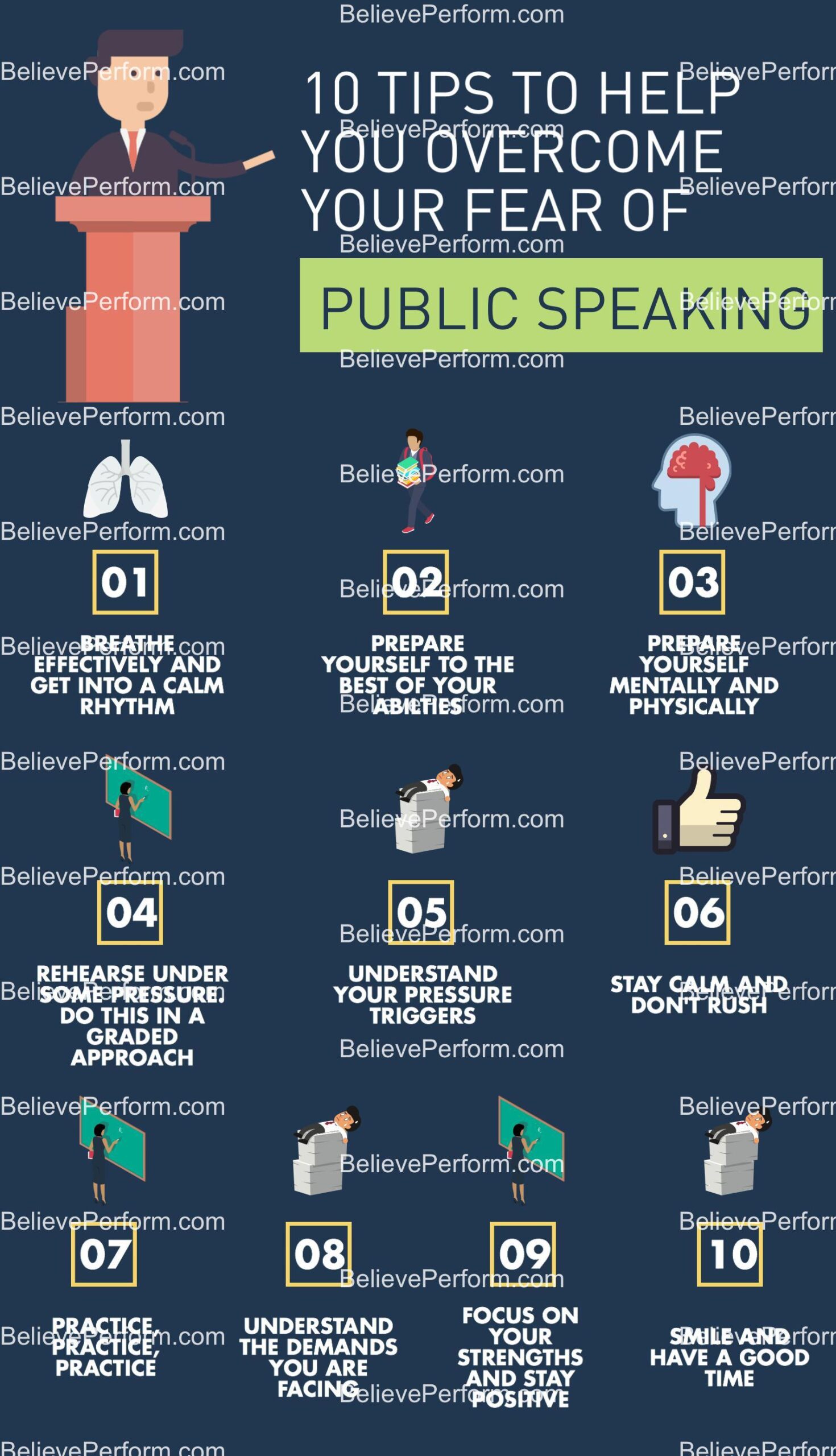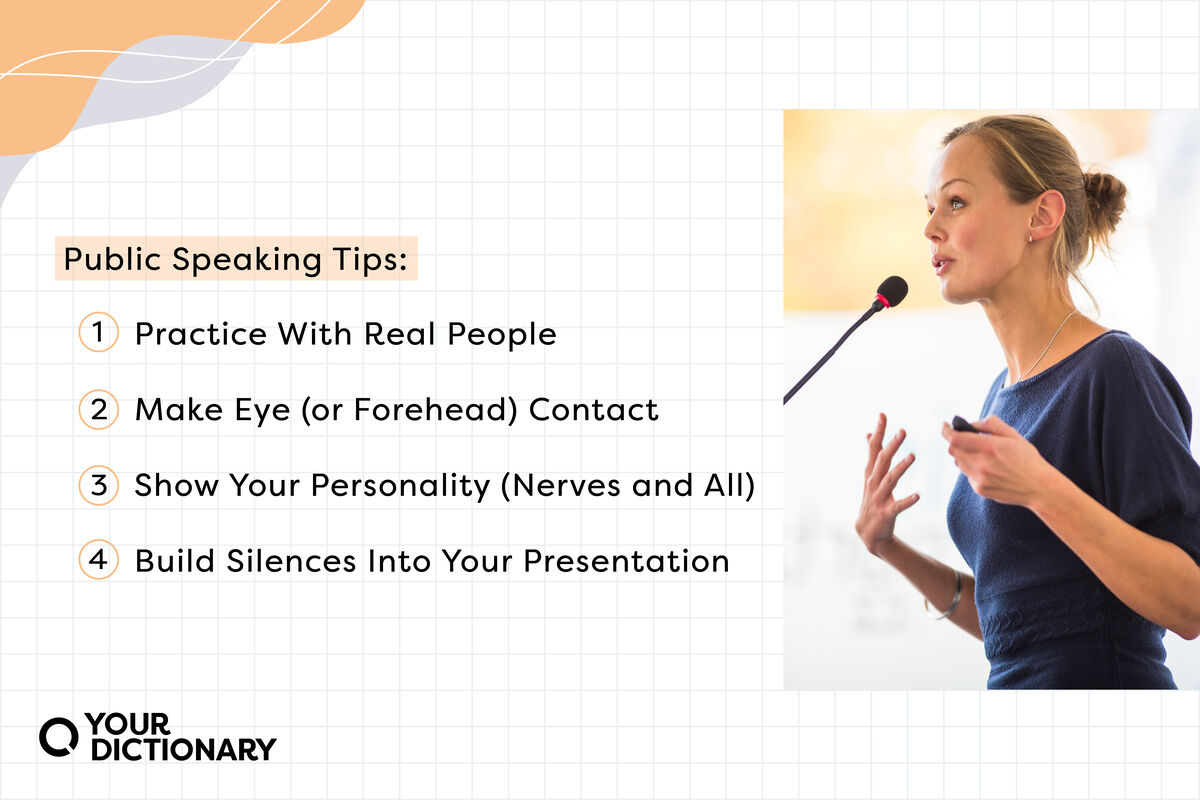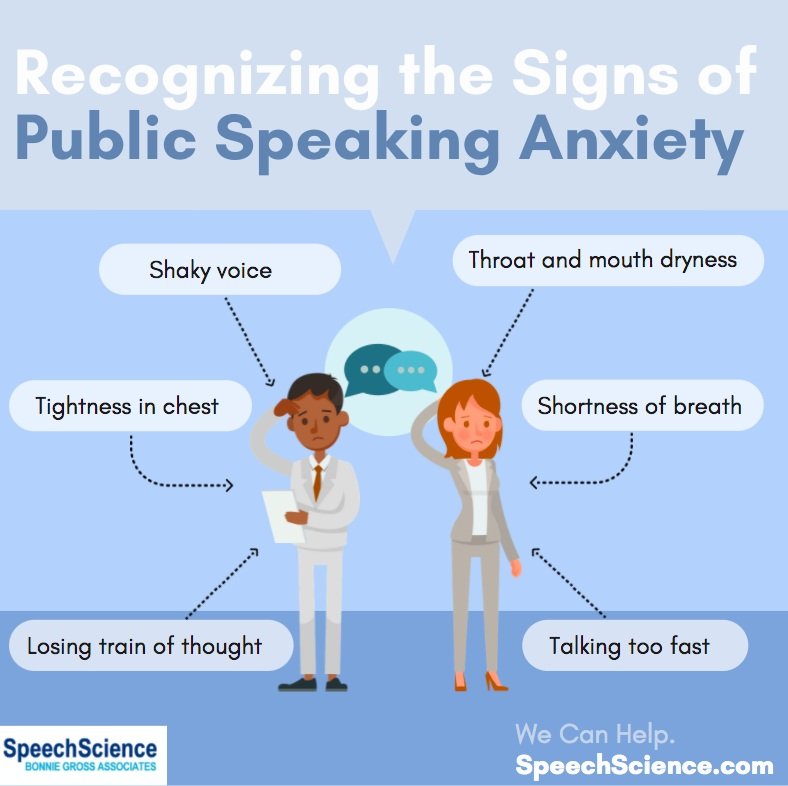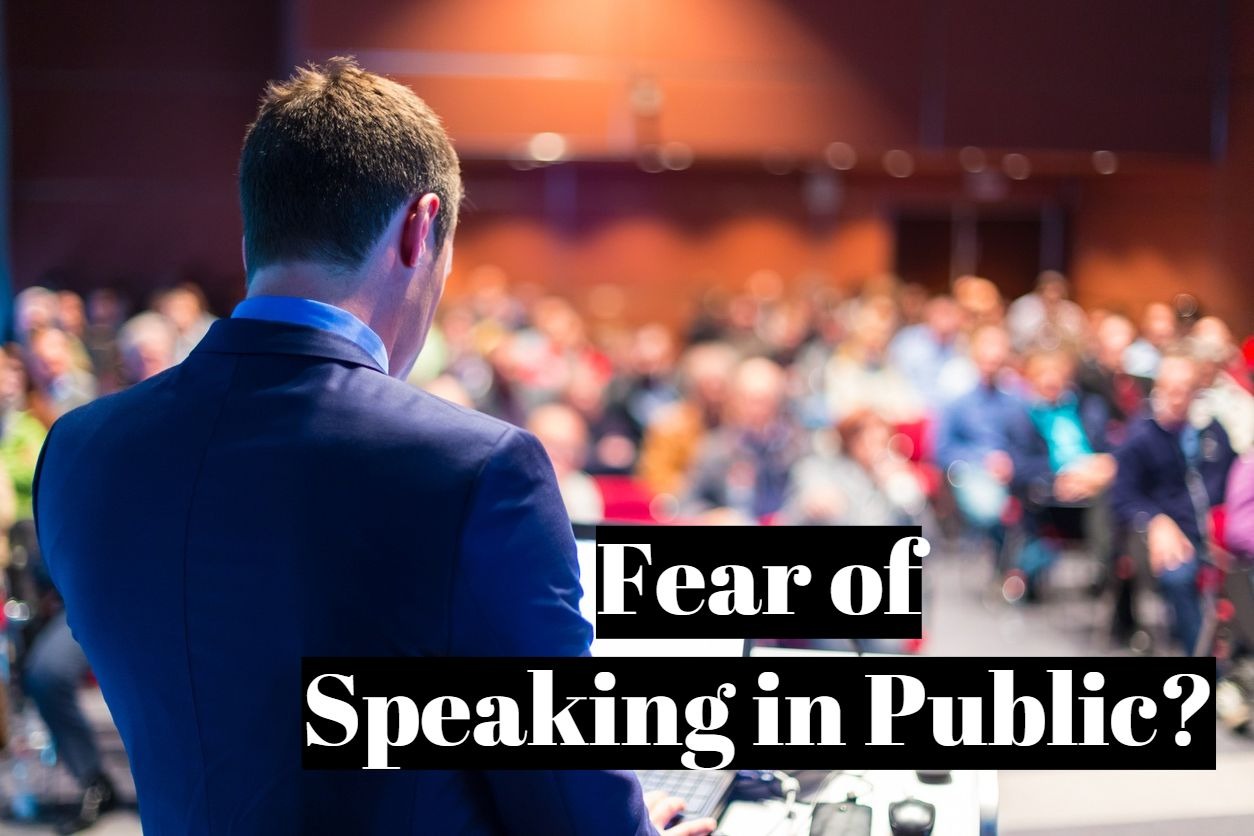How To Not Be Scared Public Speaking
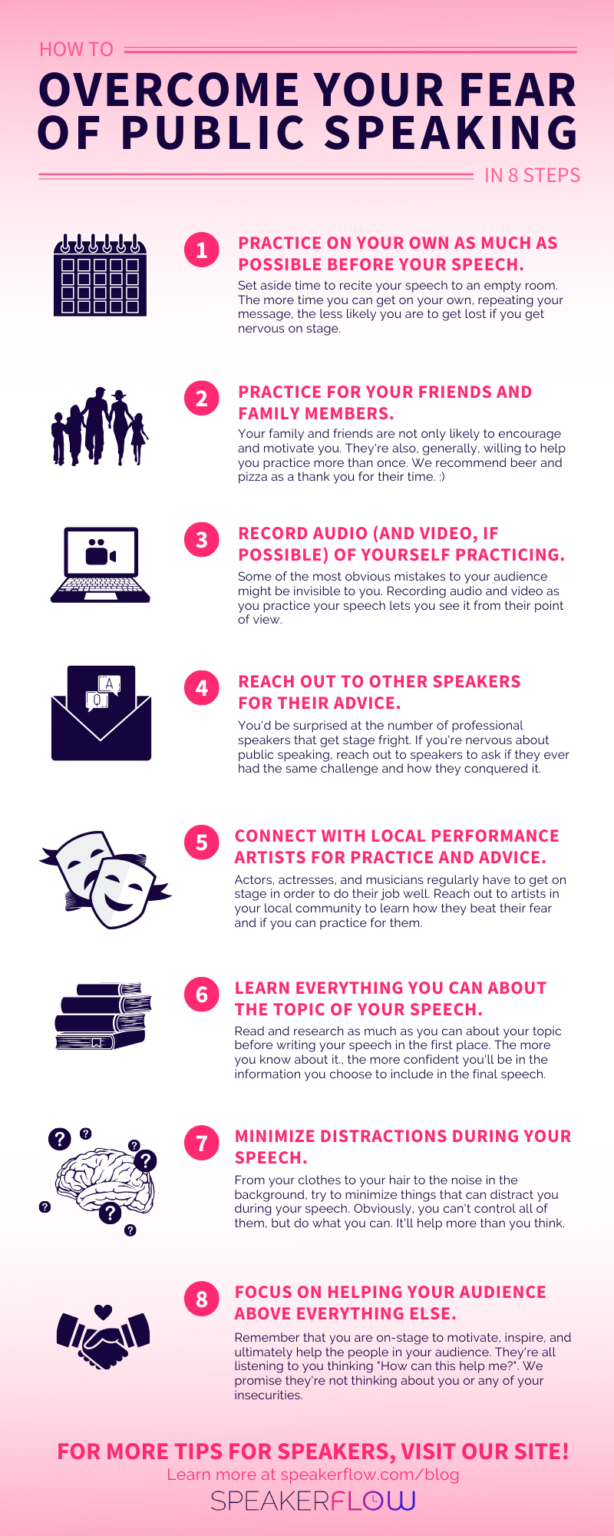
Imagine standing on a brightly lit stage, a sea of expectant faces blurring before you. Your heart pounds, your palms sweat, and your carefully rehearsed words seem to evaporate into thin air. This isn't a nightmare; it's the reality for many facing the daunting prospect of public speaking. But what if conquering that fear was more attainable than you think?
This article explores practical and actionable strategies for overcoming the fear of public speaking. It's not about eliminating anxiety entirely, but about learning to manage it and transforming it into a tool for powerful and effective communication. We'll delve into proven techniques, backed by psychological insights and practical advice, to help you find your voice and confidently address any audience.
Understanding the Fear
The fear of public speaking, also known as glossophobia, is a very common anxiety. In fact, according to the National Institute of Mental Health, it affects about 73% of the population to some degree. This fear stems from a combination of factors, including the fear of judgment, the pressure to perform, and the vulnerability of being in the spotlight.
Often, this anxiety triggers the body’s “fight or flight” response. This results in physical symptoms like a racing heart, trembling, and shortness of breath. Understanding these underlying mechanisms is the first step in taking control.
Practical Strategies for Overcoming Fear
Preparation is Key
Thorough preparation is arguably the most powerful weapon against fear. Knowing your material inside and out builds confidence and reduces the chance of being caught off guard. This includes researching your topic, organizing your thoughts, and creating a clear and concise outline.
Practice your speech multiple times, ideally in front of a mirror or with a friend or family member. Record yourself and identify areas for improvement. The more familiar you are with your presentation, the less daunting it will seem on the actual day.
Reframing Your Perspective
Often, our fears are amplified by negative self-talk. Challenge these negative thoughts and replace them with positive affirmations. Instead of thinking, "I'm going to fail," try, "I am prepared, and I have valuable information to share."
Focus on the message you want to convey rather than worrying about what others think of you. Remember, your audience is there to listen and learn from you, not to judge you.
Mastering the Art of Delivery
Your delivery plays a significant role in how your message is received and how confident you feel. Start with deep breathing exercises to calm your nerves and center yourself before you begin. Maintaining good eye contact with different members of the audience creates connection.
Use natural gestures and movements to emphasize your points and keep your audience engaged. Vary your tone and pace to avoid sounding monotonous. Remember, authenticity is key.
Embrace Imperfection
Accept that mistakes are inevitable and that it's okay to stumble over your words or lose your train of thought occasionally. No one is perfect, and your audience will likely be forgiving. Learn from your mistakes and use them as opportunities for growth.
As Dale Carnegie famously said,
"There are always three speeches, for every one you actually gave. The one you practiced, the one you gave, and the one you wish you gave."Accept the one you gave and keep improving.
Seek Support and Resources
Don't be afraid to seek support from friends, family, or a public speaking coach. Toastmasters International is a well-regarded organization that provides a supportive environment for individuals to practice and improve their public speaking skills.
They offer workshops, resources, and mentorship opportunities to help you overcome your fear and become a confident communicator. Many universities and community centers also offer public speaking courses.
Remember that overcoming the fear of public speaking is a journey, not a destination. With dedication, practice, and a willingness to embrace imperfection, you can transform your anxiety into a powerful asset. So, take a deep breath, step onto that stage, and let your voice be heard.
